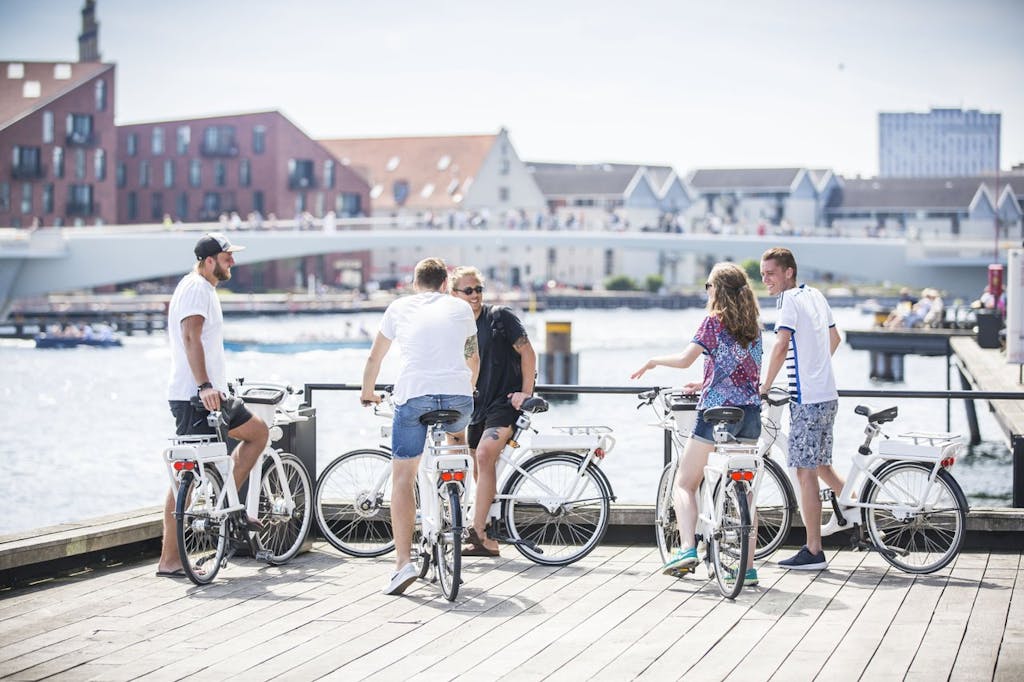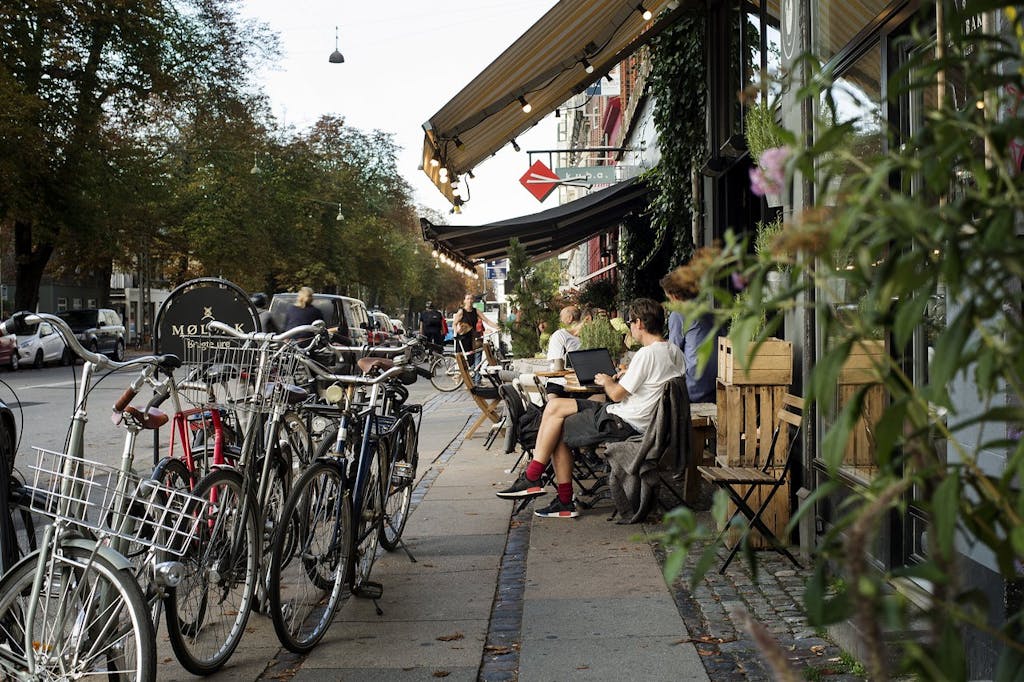The Tour de France will head further north than ever before in 2022, with the Danish capital of Copenhagen staging the cycling extravaganza’s Grand Départ for the first time.
As the home of 673,000 bicycles and a thriving cycling scene, Copenhagen has been waiting patiently for its turn to showcase one of the sport’s most famous occasions.
The city secured the hosting rights back in February 2019, and the Grand Départ had originally been due to take place in 2021. However, due to pandemic-related disruption to the international sporting calendar, an agreement was reached last year with Tour organiser Amaury Sport Organisation (ASO) to reschedule the event for July 1-3, 2022.
Fine-tuning preparations
The delay, though, has given Copenhagen more time to fine-tune preparations for its moment in the cycling limelight.
“We are happy that the event got postponed as this summer was packed with events in Copenhagen like the also-postponed Uefa Euro 2020 matches, WorldPride and the International Canoe Federation’s Sprint World Championship,” says Lars Vallentin Christensen, senior manager at Wonderful Copenhagen, the official tourism organisation of the Capital Region of Denmark.
“The extra time will allow us to involve even more partners and, even though the waiting time can be testing, it will allow for further activities and the city will be even more ready than it would have been. Obviously it will be great to have fewer restrictions, but Copenhagen was able to host big events this summer anyway due to our success in dealing with Covid-19 and our record high vaccine participation.”
Copenhagen submitted a formal application to host the Grand Départ in June 2016. Several attempts had previously been made to take the event to other Danish cities before the capital ramped up its interest in 2014.
“Wonderful Copenhagen is the one point of entry for major events in Copenhagen, so we came to an agreement and the project to secure the event for Copenhagen in 2019, 2020 or 2021 was in the planning,” says Vallentin.
“Right away, we involved the Lord Mayor of Copenhagen as well as Sport Event Denmark and the lobby activities could begin with VIP visits at ASO events, relevant stories in the media and invitations for ASO to come to Copenhagen to experience the local bicycle traditions for themselves.”

Bike-friendly city
ASO has taken the Grand Départ to various overseas destinations in recent years, including the Belgian capital of Brussels, Düsseldorf in Germany and the English city of Leeds. The Basque city of Bilbao will play host in 2023.
Copenhagen, though, is an ideal location for the Grand Départ. Since 2015, it has been ranked the most bike-friendly city in the world, with Queen Louise’s Bridge alone crossed by 40,000 cyclists daily.
Bicycles outnumber cars in central Copenhagen, with the city boasting more than 385km of cycle tracks. With 25 per cent of Copenhagen’s schoolchildren cycling to school, the city is ideally placed to welcome the sport’s elite.
“We all have different stories but the focus of engaging the public, businesses and schools remains the same,” says Vallentin. “In Copenhagen and Denmark this comes rather naturally as everyone bikes and cycling literally is part of the curriculum.
“For us the Grand Départ is a great opportunity to celebrate our bicycle culture and emphasise why it’s important to invest in the greenest, cleanest, healthiest and most convenient way to get around Copenhagen. We also want to use this platform to showcase our solution to the rest of the world and hopefully inspire other cities to prioritise bikes and help create a more sustainable planet.
“In Copenhagen, cycling is not only a sport; it’s how we get around. It’s part of our identity, and the number of bikes is a really striking feature of the city. Copenhagen ranks as the world’s best bike city, and when you add the city’s love of bikes with the Danish passion for the Tour de France, you have a powerful combination.”
Sustainable and eco-friendly means of travel are becoming increasingly important, not just for national governments, but also for sports bodies.
During the COP26 conference in Glasgow, the International Cycling Union (UCI) joined the European Cyclists’ Federation and a global coalition of pro-cycling organisations in penning an open letter to call on national governments to increase significantly the number of people who cycle in their countries.
With this in mind, Copenhagen’s Grand Départ comes at an opportune time, with organisers hoping to use the event to shine a spotlight on the city’s everyday cycling culture.

Iconic landmarks
The time trial during the Grand Départ will take riders around 13km of central Copenhagen, passing charming houses, the Little Mermaid statue and the iconic Royal Palace.
Once the peloton leaves Copenhagen, riders will head to Roskilde, where they will pass the old cathedral and circle the Viking ship museum at the picturesque Roskilde Fjord, before travelling up to the hilly ice-age landscapes in Odsherred. Then finally they will take in the huge Great Belt Bridge connecting Zealand and Funen.
There will be added local interest in Copenhagen next year, with Denmark’s Jonas Vingegaard, the runner-up in the 2021 Tour de France, hoping to go one better.
With Danish cycling experiencing something of a golden age, former world champion Mads Pedersen is also set to compete alongside other established names like Jakob Fuglsang and Kasper Asgreen.
Fans will also be able to test themselves against their heroes, with the time trial route to be open to the public for a day after the event. Additionally, a children’s race will be held, along with a summit to discuss how Copenhagen’s cycling culture can be further developed.
Looking ahead, Copenhagen has already secured hosting rights to the UCI’s Track World Championships in 2024 and BMX World Championships in 2025.
Earlier this year, Copenhagen hosted four matches during football’s Uefa European Championship, and it is hoped that events like this and the Grand Départ can establish the city as a go-to destination in the years to come.
“It is important for Copenhagen to keep showcasing why we rank amongst the best sport event cities in the world – and hosting successful events is the best way to do this,” says Vallentin. “Copenhagen doesn’t have the largest venues in the world, but we are extraordinarily good at using the city as a living venue, creating events that spill into the streets and have a strong connection to the many associations and sports clubs.”